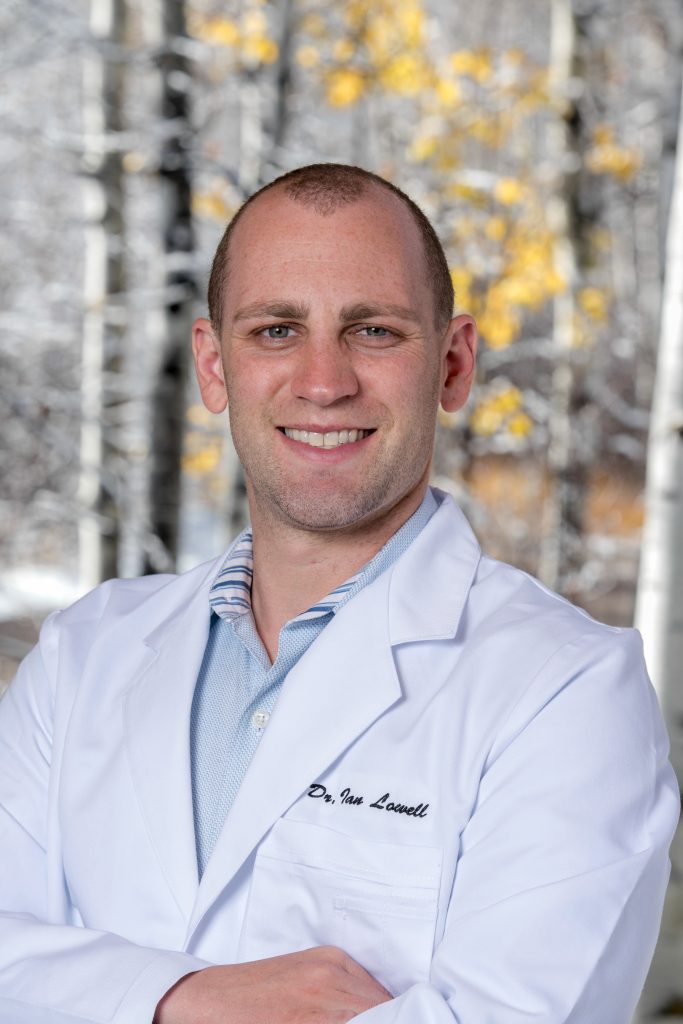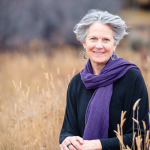Beyond the Algorithm: Rooted in Aspen — How Dr. Ian Lowell built a life and practice in the mountains
Aspen dentist Dr. Ian Lowell, DDS, reflects on the challenges of running a small-town practice, finding community, and redefining work-life balance in the Roaring Fork Valley

Courtesy photo
Few people understand Aspen’s business balancing act quite like Dr. Ian Lowell. After buying a dental practice straight out of school, Lowell learned the hard way that success in the valley takes more than skill — it takes adaptability, presence, and an appreciation for the small-town connections that make Aspen unique.
Between raising two kids, running a practice, and sneaking in mountain bike rides when the schedule allows, he’s built a life defined by community and perspective.
Q: How did you first come to Aspen?
Ian: That story really starts with my parents. My dad proposed to my mom at the top of Steamboat Springs and asked her not just to marry him, but to move to Colorado. Fast forward 20 years, and on their anniversary, they did exactly that. I was 16 when our family moved from the East Coast to Colorado.
My dad bought a place on Brush Creek, brought out six workers and a U-Haul full of materials, and we spent six weeks redoing the house. My mom and I came out early, just the two of us, for a month — it was a special time to reconnect. I finished my last two years of high school here, then went to Fort Lewis College in Durango for my undergraduate degree.
Q: What brought you back to Aspen? How did you end up buying the practice?
Ian: After dental school in Denver, my wife and I moved back to Aspen in 2018. My dad worked two days a week for Dr. Dylan Gibson and handled orthodontics and endodontics. When we approached Dr. Gibson about his plans for retirement, he was ready to sell, so we took over the practice that same year.
It was a full-circle moment — my dad had spent years working there, and I stepped in to continue that legacy while he stayed on part-time during the transition. It made the whole experience more meaningful, having him by my side in the same space where he’d built such strong relationships.
Q: You took over your practice right out of dental school — what was that first year like?
Ian: The first year was tough. I knew dentistry, but business ownership was another story. We bought the practice and all new equipment with zero working capital — literally started with nothing in the bank. For months, it was a question of whether we’d make payroll. I had support from my family — my dad had run a dental office for 30 years, and my wife handled the books — but it was still a trial by fire.
What I learned quickly is that being good at your craft doesn’t automatically make you good at running a business. Managing a team, making payroll, handling stress — that’s where the real learning happened.
Q: You mentioned the importance of compartmentalizing. How has that shaped the way you run your practice?
Ian: Compartmentalizing has been life-changing. In Aspen, success isn’t just about doing great dentistry — it’s about showing up as your best self every day. We don’t run an insurance mill, and what I mean by that is we don’t just treat patients and never see them again. I might do a filling for someone on Tuesday and run into them at the grocery store on Wednesday.
That means it’s so very important to separate whatever stress is happening behind the scenes — payroll, family, business — from the patient in front of me. People don’t like coming to the dentist in the first place, so we want to make sure that our patients feel safe and cared for. Being able to find positivity and presence in every appointment is everything.
Q: What are the biggest challenges you face running a business in Aspen today?
Ian: Staffing has been one of the hardest parts. It’s not difficult to find someone you can train — it’s difficult to find someone whose personality fits your team. In a small town, the hiring pool is tiny.
The other big challenge is the shrinking number of full-time residents. Every year, it feels like we’re losing more locals, which affects everything from housing to patient volume. Even though I’m not trying to run a massive operation, I still need a certain number of patients to keep the lights on.
Q: Your office isn’t on Main Street. How has your location on Ute affected your business?
Ian: We’re tucked away in the Benedict Building on Ute Avenue — we like to call it our treehouse. There’s a free parking lot and a peaceful view, which adds a lot to the experience. But we don’t get the same foot traffic as the Main Street practices. If you’re downtown, you’ve got built-in visibility.
Our patients have to know we’re here — word of mouth is everything. The nice part is that the building only houses local businesses. It’s a little hidden, but it feels authentically Aspen. And did I mention free parking? That’s basically gold here.
Q: How do you see your practice — and your life — evolving over the next 10 years?
Ian: I hope I win the lottery! But really, I see continued growth, both personally and professionally. I’m the youngest dentist in town, so there’s room to expand if other practices decide to sell down the line. But for me, it’s not about burning out or grinding endlessly. We didn’t move here to work ourselves to death.
We moved here for the lifestyle — to be able to ski, bike, spend time with family, and build one-on-one connections with our patients where we genuinely care about what’s going on with their family and their lives.
Everyone talks about work-life balance, but I think it should be life-work balance. Work should support the life you want, not consume it.
Q: What advice would you give to young dentists starting out?
Ian: Don’t buy a practice right out of school! Work as an associate first, learn the ropes, and make sure you actually like where you live. I jumped in headfirst, and while it worked out, it came with stress I wouldn’t wish on anyone.
When you do decide to buy a practice, decide on a place and lifestyle first, and look for an opportunity that facilitates that goal
Q: We interviewed Tom McLain last week. Do you see yourself behind the dentist’s chair for 60 years as well?
Ian: Not really, to be honest. Dentistry, like a lot of hands-on professions, is hard on the body. I don’t want to be doing it in my 70s — maybe not even in my 60s.
The idea of establishing an institution with that kind of longevity is romantic, but I’m mostly focused on creating a work environment where everyone enjoys what they do right now, and allows the team to have the energy to enjoy their lives in one of the most idyllic towns in the world.
For Dr. Lowell, Aspen represents more than a business opportunity — it’s a lifestyle. “We weren’t put on this earth to work,” he says. “We were put on this earth to live — and work is supposed to facilitate that.” It’s a philosophy that fits Aspen perfectly: work hard, take care of your people, and make time for the mountains.
Bryan Welker lives and breathes business and marketing in the Roaring Fork Valley and beyond. He is President, Co-founder, and CRO of WDR Aspen, a boutique marketing agency that develops tailored marketing solutions. Who should we interview next? Reach out and let us know bryan@wdraspen.com.




